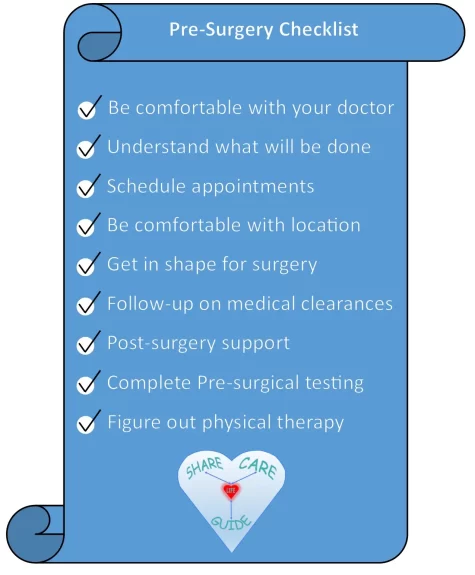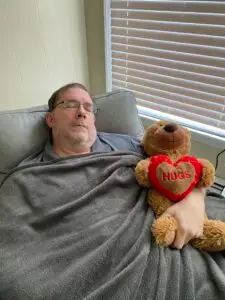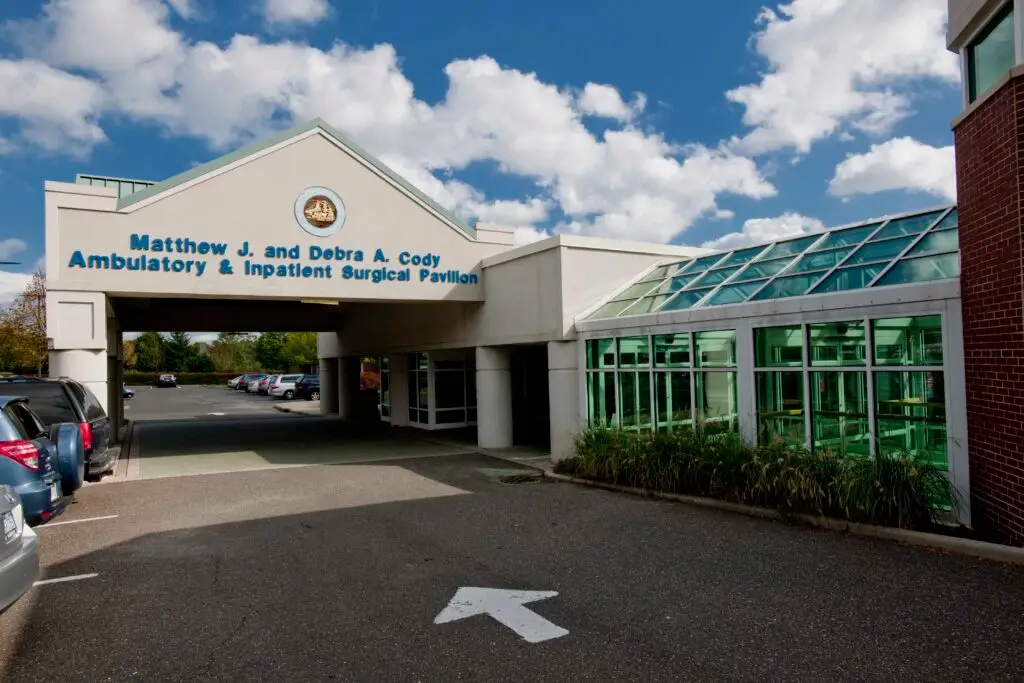
Hi! I’m Paul – a retired IT professional who cares about helping others through my life’s array of experiences. To learn more about me, read my bio. Thanks!
Knee Replacement - Prepare for the Procedure
Introduction – Knee Arthroplasty Surgery
In my initial blog post, Knee Replacement – The Journey Begins, I gave you an overview of my history. It discussed the decision to have a full left knee replacement, also known as a total knee arthroplasty.
In this post, I will explain what I did to prepare for the surgery. Setting yourself up for success is critical for your surgery but even more for your recovery. You will learn what I did to set myself up for success. I go through what worked for me in relation to pre-surgery and post-surgery preparedness. I will discuss pre-surgical testing, guidance, and recommendations. These may help you and the person(s) supporting you through this process.
Preparing for Replacement Surgery
I mentioned in my previous post that my doctor’s recommendation was to wait to have the knee replacement. When significant changes presented, I pursued a knee arthroscopy. The process began with a call to my orthopedic surgeon. In that appointment, I explained the changes to my situation as:
- Increasing pain in both knees
- Decreasing mobility
- Deterioration of both knees
The doctor took x-rays and explained how the left knee was in worse shape than my right knee. What we discussed made sense to me so I agreed to the total left knee arthroplasty.
Setting Up for Arthroplasty Success
Determined, I would do everything possible to set myself up for success. Thinking ahead, I researched what would limit potential issues. The main thing for me to do pre-surgery was to lose weight. My doctor told me this will help him during surgery and aid my recovery afterwards. A body mass index (BMI) greater than 40 has the potential to cause a higher risk of complications. I lost about 50 pounds before surgery, which according to the doctor helped. In a future post, I will discuss how I accomplished this. I also had right knee pain and issues affecting my spine, back, and both legs. Speaking with my doctor about what I could do to reduce this pain to aid recovery, we decided on the following:
- Gel shots to help reduce the right knee pain
- Work with a pain management doctor to get two epidural shots for the back pain
- The epidural shots were also to help with the leg pain not related to my knees
I had my doubts to whether the plan would work, but it made sense to me. To my surprise, each of these pre-surgery procedures reduced the pain and discomfort in the right knee, back and legs. I became more optimistic about my post-surgery recovery.
Pre-Surgery Preparedness
I had a list of things that was going to happen, or I needed to address when I left my doctor’s office,. These included:
- Getting a call from the scheduling department with the date of the surgery
- Setting up medical clearance appointments with other doctors
- Preparing for post-surgery support at home
Scheduling
Shortly after the appointment with my doctor, I received a call from the hospital with the date of my knee arthroplasty surgery. I reviewed some basic information with them and set up pre-surgical testing dates. One date for the knee arthroplasty surgery and another for a Covid-19 test. I understood the hospital required my clearances before the pre-surgical testing appointment.
Pre-Surgery Medical Clearance
I needed medical clearance from my primary doctor, dentist, and cardiologist. You may have to get different clearances based on the medical conditions you have. My surgeon and the hospital where the procedure was going to take place determined the types of clearances. They wanted to have the following:
- a clear understanding of the medications I was taking
- direction from each doctor who prescribed it whether I had to stop the medication before surgery or not
- if so, how long before surgery to stop those medications
My primary doctor (General Practitioner), in my case, wanted to be the last doctor providing the clearance. She wanted to review the other clearances and give the final approval for the surgery. Be prepared for several blood tests and a lot of questions. I also found it odd that I needed my dentist’s clearance. When I questioned it, I learned that many infections begin in your mouth with your teeth or gums. It turns out those infections get into your bones and could affect your knees, putting your surgery and health in jeopardy. Who knew?
Medical Clearance Headache
All my clearances, in the end, went well. I did have one issue between my cardiologist and primary doctor’s offices. It was about low dose aspirin I take. The doctor who recommended I take the preventative 81mg aspirin retired. No other doctor wanted to take responsibility for clearing me with this medication. My cardiologist wanted the surgeon to decide if I needed to stop taking it before surgery. The surgeon did not want to because cardiac maintenance is why people use it. They wanted the cardiologist to sign off. With that, the cardiologist pushed it onto my primary doctor. The original doctor who suggested I take it was my old primary doctor. My current primary would not give her clearance until they found a resolution. My cardiologist provided the direction after the offices for my primary doctor and cardiologist talked it out. The hospital received all clearances.
Headache Explained
I know I am making the above sound like this was not a big deal. It was quite the contrary. The nurse who contacted me from my cardiologist’s office was quite rude and scolded me about it. She was doing a lot of complaining about other doctors such as surgeons and my general practitioner. Each of the offices was putting me in the middle. I felt they needed to work it out on their own and inform me of the conclusion. One wanted me to provide the other a message. I worried that I would not give an accurate translation of the message. In the end, they did talk with each other, but it was not before I considered cancelling the knee arthroplasty surgery. I realized that would not be in my best interest. Thank goodness cooler heads prevailed in the end.
Important Post-Surgery Support Information
One final thing I needed to do before surgery was to confirm my post-surgery support. This means:
- I had to make sure someone was available to give me a ride home from the hospital.
- My sleeping arrangements were set – I had to figure out if I needed access to the second story or could I sleep on my main floor. This was important because going up and down stairs would be challenging right out of the hospital.
- Determine my bathroom situation – Is it on the same floor as where I am sleeping or on another level of the house? Where is the shower? Depending on the surgeon, you will either be showering after a couple of days or within a week. In my case I was showering after a few days.
- How would I be icing my knee? The recommendation was I use a Cryo Cuff device to have continuous icing. I found this device useful, but others did not based on conversations with those who had knee or shoulder replacements. If you do get it, be sure to get the correct one. There is a different cuff for knees than there is for shoulders or other body parts.
- Determine how and when to get a cane and walker – Check with your insurance company and hospital on coverage. Will you receive it at the hospital or need to get them on your own? You will need the walker first. It was several weeks for me before I could even consider using a cane to get around.
- Know where you want to go for physical therapy – I had at-home physical therapy out of the hospital. I found myself scrambling a little to find an outpatient facility once that ended.
Pre-Surgery Testing
Initial Contact
In the initial call from the hospital, they scheduled my two pre-surgical testing dates. One was for a covid test a few days before my surgery to make sure I was negative for Covid-19. Check with your hospital or surgery center to see if this is still done.
Second Contact
The second appointment, within a week of the surgery, was for pre-surgical testing at the hospital. They gave me a mini physical and reviewed all the clearances. It took about two hours to complete. Your medical conditions and any concerns they may have with you under anesthesia determine which tests you get. They will review your medications in detail and make sure you know which ones you can take the day of knee arthroplasty and which ones you cannot take. They will also review when you need to stop taking certain medications, if necessary. For example, going back to my aspirin issue, they determined I needed to stop taking it seven days before surgery. The nurse confirmed my understanding of that.
Assuming the exam goes well, the nurse will explain what to do and where to go the day of the knee arthroplasty surgery. In my experience, they told me:
- to expect a call from the hospital the evening before when they would tell me the time to be at the hospital
- what to bring with me to the hospital
- how long to expect to be there, especially for outpatient procedures
- where the person waiting for me can go to wait.
They ensure there is a phone number on record for the person the doctor needs to contact after the procedure. If you have had surgery or outpatient procedures before, this is all pretty standard.
Guidance – Knee Arthroplasty
Prepare for Surgery
If I can guide you to do anything, it is to prepare. When you get home, you should have what you need available for use. You will not be able to get anything yourself and you will most likely have needs that will prevent someone from leaving you to run to the store.
Before the procedure very early on, make sure you have confidence in your surgeon as well as the hospital. If not, you should reschedule the procedure until after you find either a new doctor or location for the procedure.
What to Do After Surgery
Know where you want to go to physical therapy after the knee arthroplasty:
- Call or visit the location.
- See how difficult it is to enter and exit the location.
- Ask them questions you have.
- Find out what they will have you do.
- How often do they want you to go?
Find out from the doctor and your insurance if coverage includes any home physical therapy. Can you have a nurse stop by to check on you? In my case, I was able to have an at home nurse, but I understand not all insurance plans provide this coverage.

The doctor should tell you when your first follow-up appointment should be. If allowed, make that appointment before you have your surgery. Have a list of questions prepared for the doctor when he or she calls after the procedure that your contact can ask. I realize some of your questions depend on what the doctor says on the call. Yet you can get your thoughts around the types of questions you want to ask.
If prepared, you will feel much more comfortable going into surgery. It will also help with your recovery.
What’s Next
My next post in this health category will discuss my knee arthroplasty pre-surgical testing and training. So you know what to expect I will provide the detail you need. I will let you know what I went through as far as testing and preparation for surgery. I will tie in the prep work done to what will happen the day of surgery. Finally, you will learn how I was set up at home for recovery after discharge from the hospital. You can take my lessons learned and apply them to yourself before your procedure.




2 Responses
Excellent information! I thought it was interesting that you needed to see your dentist. Sorry you had to go through all the back and forth to get your medical clearances; glad it all worked out. The Pre-Surgery checklist is great. Love the bear picture!!
Thanks for the feedback, Mary Anne. I’m glad you found the information useful as well as interesting.